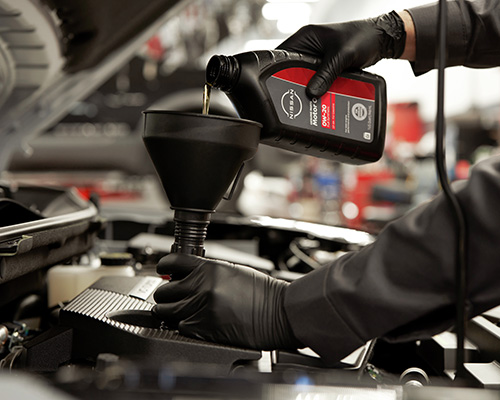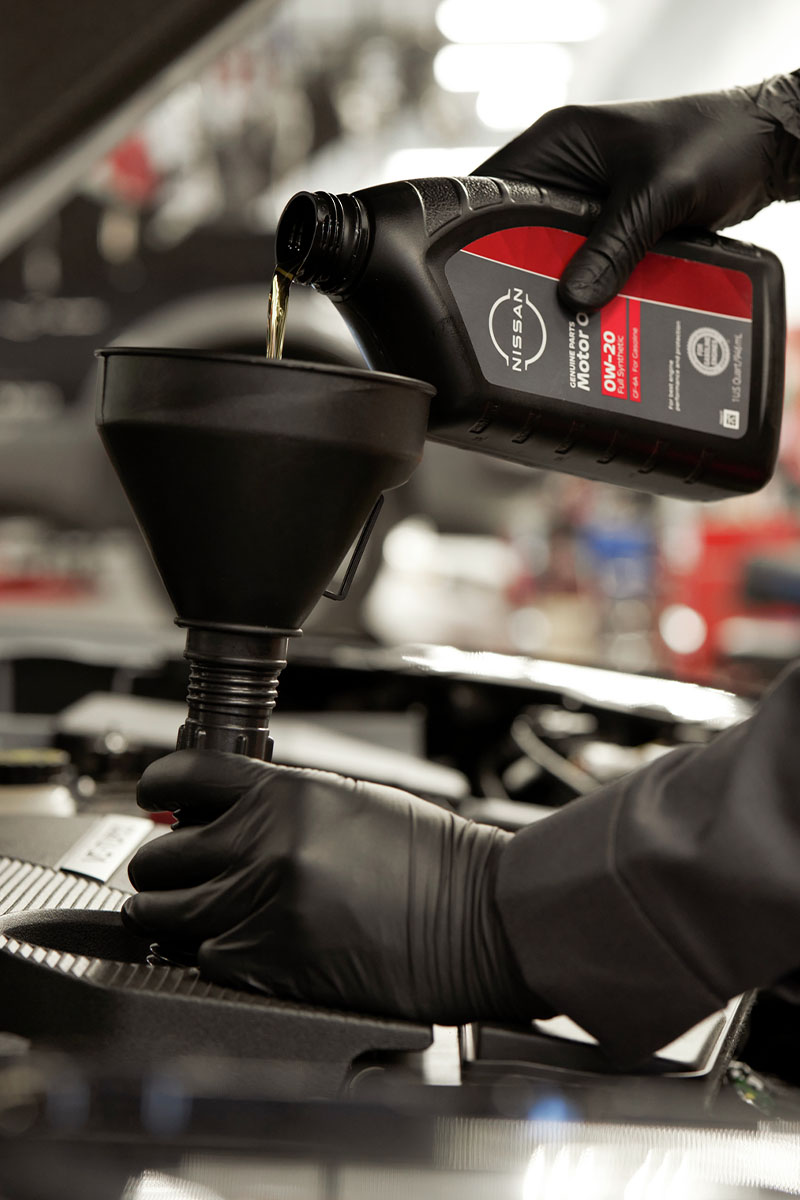Oil & Filter Change Services
At McDonough Nissan
At our service center, we prioritize regular oil changes to keep your vehicle running smoothly and extend its lifespan. Whether you drive a car, SUV, or truck, our expert technicians provide tailored oil and filter change services to meet your needs.
We offer comprehensive preventive maintenance with a choice of conventional, high mileage, synthetic blend, or fully synthetic oils. Our skilled technicians will use quality motor oil and replace the oil filter while inspecting essential vehicle components such as radiator fluid levels, engine air filtration system, serpentine belts, brake fluid level, wiper blades, exterior lights, and chassis.

Why Choose Our Oil Change Services?
In addition to oil changes, we offer various complementary services to ensure your vehicle’s optimal performance. We check and adjust tire pressure and inspect and top off other vital fluids, including transmission, power steering, differential/transfer case, and washer fluids. As a bonus, we provide interior and exterior care by vacuuming the vehicle’s interior and cleaning the exterior windows, ensuring your car looks and feels fresh. Trust our trained technicians for top-notch service and thorough maintenance to keep your engine running smoothly.
Frequently Asked Questions
Why do I need an oil change?
How Often Should I Get My Oil Changed?
What Happens During An Oil Change?
Can I Use Different Brands of Oil in My Vehicle?
What Makes an Oil Change Different for Diesel Cars?
What Other Fluids Require Maintenance Service?
In addition to engine oil, other vital fluids in your vehicle need regular maintenance. These include transmission fluid, brake fluid, coolant (antifreeze), power steering fluid, and windshield washer fluid. During a comprehensive service, these fluids are checked for appropriate levels and condition, and suggested for replacement if necessary to ensure the proper functioning of your vehicle’s systems.
How Do I Know if My Vehicle Needs an Oil or Fluid Change?
Do You Offer Synthetic or Conventional Oil?
Can I Change the Oil Myself?
Yes, you can change the oil yourself if you are comfortable with the process. However, it is important to use the approved oil type specified in your vehicle’s owner’s manual to maintain warranty coverage and ensure optimal engine performance. Additionally, properly disposing of the used oil is crucial for environmental protection. If you’re unsure about the process or lack the necessary tools, it’s best to have a professional handle the oil change for you.
Visit Us Today!
When it’s time for an oil change, trust us to keep you on the road. Visit McDonough Nissan, where our friendly staff is ready to answer your questions and provide quality service. Your car’s longevity and your peace of mind are our priorities.


Designed to Fit
Your Schedule
Our Express Services are designed to fit into your busy schedule without compromising your vehicle’s performance and longevity. To accommodate our Express Services offerings, we have two bays that are dedicated exclusively for these services so we can get you in and finished in just 45 minutes.
Oil & Filter Change Service
Battery Diagnostic Check & Replacement Service
Air Filter Replacement
In-Cabin Microfilter Replacement
Tire Rotation & Balance
New Tires
New Wipers
Factory Scheduled Maintenance
Stay Original, Stay Nissan.
Genuine Nissan Parts
Keep your Nissan performing at its peak with genuine OEM parts. Designed and engineered exclusively for your vehicle, our authentic parts ensure perfect fit and function, maintaining your Nissan’s integrity and warranty.
